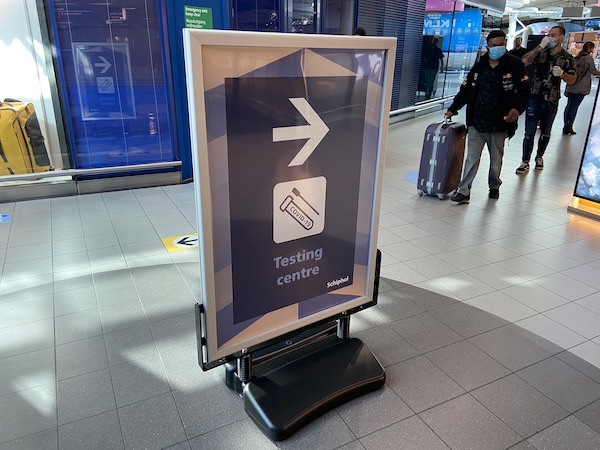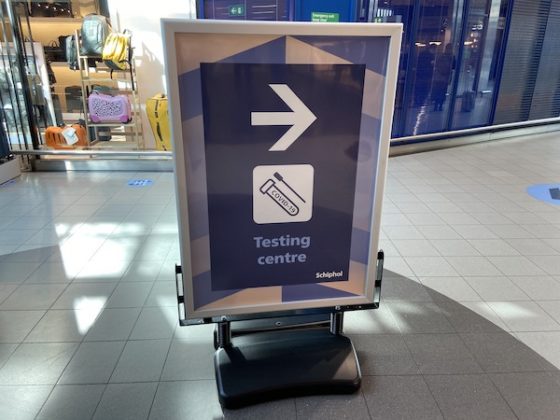Some 80,000 airline passengers were exposed to coronavirus: VK


Some 80,000 passengers on flights to the Netherlands were seated close to people infected with coronavirus but three quarters were not told, according to an analysis by the Kennemerland regional health board requested by the Volkskrant.
The health board, responsible for tracing the source of infections on planes, based its figures on international airport passenger data.
The infected passengers – some 11,488 in total – were spread over 9,343 flights. Passengers within two seats of the infected person in all directions, and crew members who have been in close contact the person involved, are considered to be at risk.
Of the 80,000 passengers who may have been infected, the health board was able to contact just 19,500.
During the busy summer months the health board followed up less than 15% of the reported contacts by phone, health board spokesman Harm Groustra told the paper. ‘We had to resort to e-mails because there simply wasn’t the time to call them all,’ he said.
After the autumn break the number of contacted passengers rose to some 55%.
Holidaymakers returning to the Netherlands from Crete, Palma de Mallorca and Istanbul accounted for most of the infections. Some 800 infected travellers entered the country from these destinations.
The true number of infected passengers could be higher, the health board said, because only cases in which the infected person has tested positive and has symptoms are followed up.
How many of the 80,000 people who did pick up the virus as a result of sitting near an infected person is being looked into, the health board said.
Greater risk?
The figures have no bearing on the likelihood of catching the virus on flights, the health board said, because the infections which have traced may have been a result of contacts before or after the flight.
According to health institute RIVM’s weekly reports, less than 1% of the infections can be attributed to close contact on a flight.
Maarten Goeijenbier, virologist at the Erasmus MC in Rotterdam, said the risk ‘becomes cumulative’ the more people move around. ‘One thing is clear. You stand a much bigger chance of becoming infected if you travel than if you stay at home,’ he said. ‘International travel also carries the enormous risk of spreading new variants very quickly.’
Thank you for donating to DutchNews.nl.
We could not provide the Dutch News service, and keep it free of charge, without the generous support of our readers. Your donations allow us to report on issues you tell us matter, and provide you with a summary of the most important Dutch news each day.
Make a donation